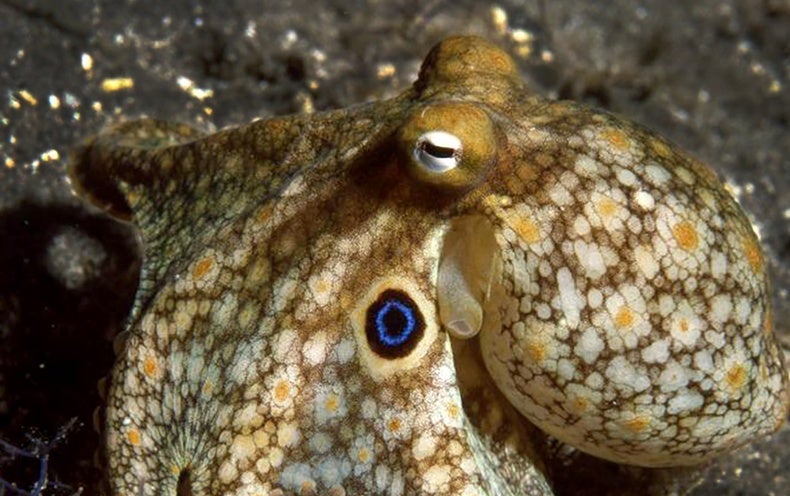Octopuses are among the smartest animals on the planet, and some of them are also the strangest. They have the same number of neurons as dogs, but more than half of those cells are distributed in the eight arms of the slippery cephalopods, rather than in the central brain.
As the researchers reported on June 8 cell, The neurological anomaly only gets weirder and weirder from here on out. And they discovered that octopuses have the ability to recode their neurons In response to changes in temperature, these cells produce different proteins. Like humans adjusting their clothing to the weather outside, octopuses edit their RNA, a genetic molecule that carries DNA instructions for making proteins—the working units of cells. The researchers believe that these “brain adaptations” help octopuses adapt to heat or cold when the seasons change. They do this to an “extraordinary extent,” says co-author Joshua Rosenthal, a biologist at the Marine Biological Laboratory in Woods Hole, Massachusetts.
RNA modification occurs when an external force activates certain enzymes in the body’s cells, which then make chemical changes to the RNA. Depending on the changes, the cells produce different forms or isoforms of the proteins. Because RNA is a transient molecule, the changes it makes to the genetic information it carries will not be permanent—a property that theoretically makes it a powerful tool for adapting to changing environmental conditions.
RNA modification affects protein production in less than 3 percent of genes in humans, while Rosenthal and colleagues previously found that All species of advanced cephalopodsThat is, all cephalopods except Nautilus can recode most neuronal proteins.
The researchers wanted to follow up on this earlier work to see what factors might drive RNA modification in cephalopods. They start with temperature change because it is a direct environmental condition that fluctuates seasonally or even daily.
For the first time, scientists have collected dozens of wild California double-spotted octopuses (octopus bimaculoides), a species whose genome has already been sequenced. The animals were habituated to tanks containing hot or cold water. After a few weeks, the researchers looked at about 60,000 previously identified sites in the animal’s genome where enzymes modify RNA. They found that about a third of the sites had changed, and that these changes had spread quickly, from hours to a few days. “We expected to see a few spots here and there that changed, but no, it’s a very global thing,” said co-author Eli Eisenberg, a physicist at Tel Aviv University whose research focuses on RNA.
The team found that almost all of the changes were caused by the cold. These changes included those encoding specific classes of proteins involved in cell membranes, synapse functions (which transmit nerve signals), autophagy (programmed cell death), and calcium binding (which plays various roles within neurons). The researchers confirmed that the isoforms created by the modified RNA changed function, but “we don’t yet know how these thousands of changes, or how some of them, promote adaptation,” says Eisenberg. “Understanding the global impact of these ritual changes is left to future studies.”
Finally, the team also collected wild octopuses—including another closely related species, Verrill’s two-spotted octopus (Octopus Bimaculatus) – in summer and winter. The researchers found that these individuals showed the same temperature-tracking RNA-related changes as the California two-spot polyps they tested in the lab.
Unlike humans and other mammals, octopuses cannot regulate their own temperature. The researchers therefore suspect that RNA editing plays a role in protecting invertebrate neurons against temperature fluctuations. “An organism chooses to express different isoforms, and each one is better in its own situation,” says Eisenberg. “There is no example of this happening in mammals.”
Heather Hundley, a biologist at Indiana University Bloomington who was not involved in the research, called the new sheet “a real powerhouse.”
“This work adds to the growing body of data showing that RNA editing can be dynamically regulated,” he says. “While previous work has focused primarily on regulation during development and disease, this work shows that RNA editing can serve as a molecular method to adapt protein function in response to environmental changes in temperature.”
Rosenthal, Eisenberg and colleagues plan to continue this type of study by examining additional factors that may lead to changes in protein production, such as pH and oxygen levels or the social environment. “How broad is this adaptability through RNA editing?” says Rosenthal. “We still have a lot of interesting work ahead of us.”
2023-06-08 22:13:39
#Octopuses #redesign #brains #cold

